
- Biden and Harris won in 2020 with focused efforts to drive up Black voter turnout in the final weeks, especially in Pennsylvania and Georgia.
- “It’s just about one placebo or the other placebo,” said a 23-year-old who plans to vote for Harris.
PHILADELPHIA — Three construction foremen taking a break in an alleyway on a recent Wednesday are among the most coveted voters in the country: middle-aged Black men and union members, living in Pennsylvania, the largest battleground state.
They don’t sound excited about it.
“Whatever president we’ve had in office for the past 42 years, they’ve never affected anything in my household,” said Desmond Chandler, who is 43 and lives in Philadelphia.
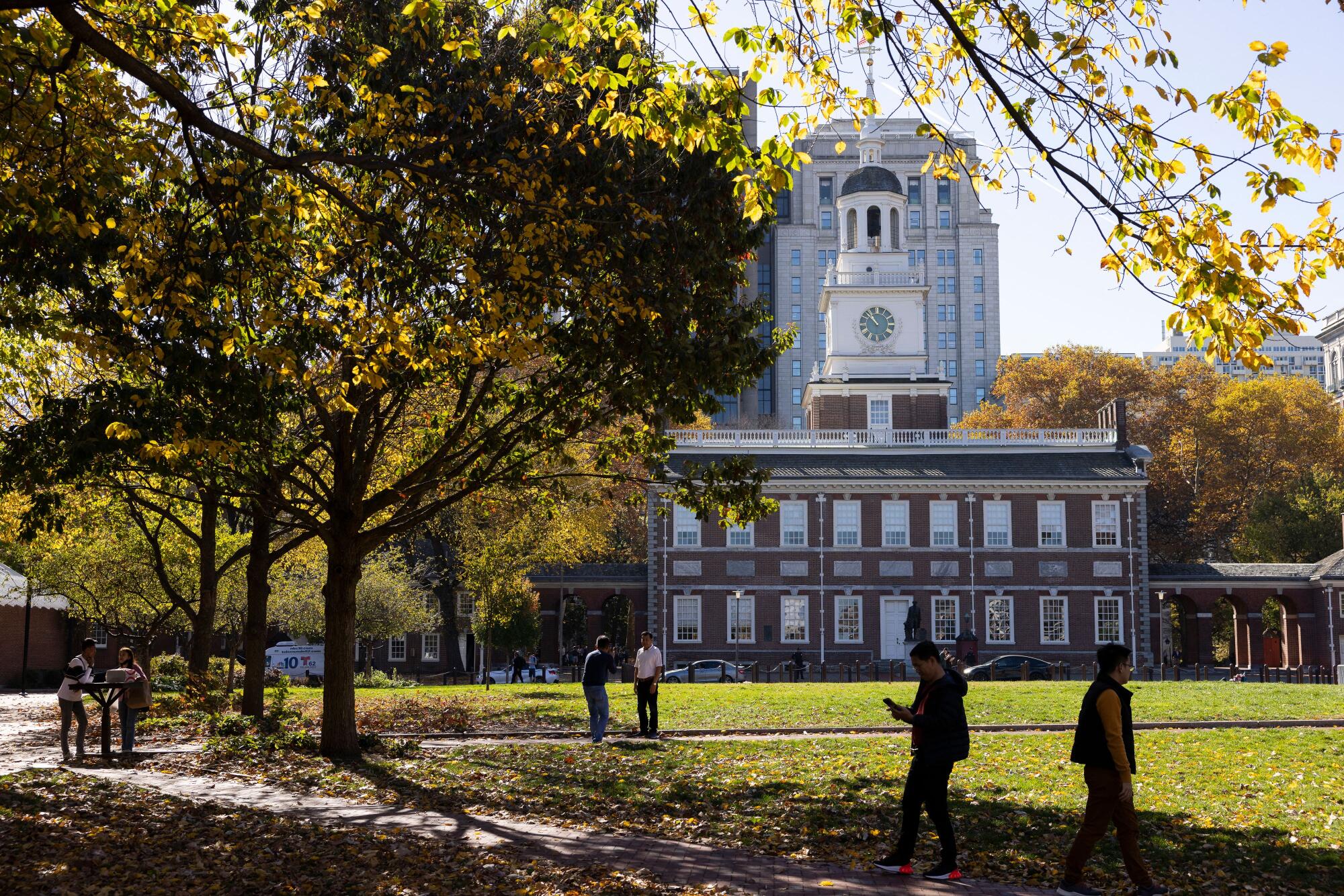
His friend Mike Gray was just as disillusioned. Vice President Kamala Harris is a “puppet for the white people,” but he would never vote for former President Trump, who manufactured his neckties in China, used nonunion labor for construction projects and carves up the electorate with terms like “Black jobs,” he said.
Interviews in recent weeks with more than two dozen Black men across two of the most critical battleground states — Pennsylvania and Georgia — offer a broader context for what polls have shown. Harris is likely to win a commanding majority of Black voters, despite extensive efforts by the Trump campaign to entice Black men in particular.
But Harris still has work to do in what is expected to be an exceedingly tight election. She needs to expand her majority among Black voters even more, to match President Biden’s winning formula from 2020. As importantly, she also has to motivate people like Chandler and Gray to show up and cast ballots.
Peggy Hayes has been through a lot since Donald Trump first won office, and her views of him have evolved. She remains a supporter, albeit a less zealous one.
A recent Howard University survey of Black voters in seven battleground states showed Harris leading Trump 82% to 12%. Other surveys found Harris with slightly smaller leads, including an August Pew poll showing a 77%-13% lead at the national level and a Suffolk University survey of Black voters in Pennsylvania conducted in August showing a 70%-9% lead.
No credible survey shows Trump within striking distance. But Biden won Black voters by an even larger margin in 2020 — 92% to 8% at the national level, according to a postelection analyis by Pew.
The biggest gap? Black men between the ages of 18 and 49 are Harris’ weakest link, according to the Howard survey, which found they supported her 75% to 16%.
The difference may seem small but could be decisive, given the close margins in the states that decided the 2016 and 2020 elections, and the need for Harris to win big in Philadelphia, Atlanta, Detroit and other big cities with large Black populations to overcome Trump’s advantages with rural white voters. Black voters have tended to make their choices closer to the election in prior elections, giving Harris room to grow.
Biden and Harris won in 2020 with focused efforts to drive up Black voter turnout in the final weeks, especially in Pennsylvania and Georgia, where the state also elected Raphael Warnock as its first African American senator. Black voters made up about a third of the eligible voters in Georgia and about a tenth in Pennsylvania.
In interviews, Harris’ supporters most often cited Trump’s character and the belief that Harris’ economic policies would be better for working-class people. Those who expressed doubts about Harris were most likely to bring up inflation and, in some cases, Harris’ career as a prosecutor or questions about her racial identity, which Trump has brought up in an attempt to divide her support.
Harris, whose father was from Jamaica and mother was born in India, has written that she was raised by her mother to identify as Black. She attended Howard, a historically Black university, and has emphasized her ties to the powerful Black sorority network.
Gray, the 49-year-old construction foreman, has voted for Democrats in prior elections, including Biden in 2020, but said he is not sure whether he will cast a vote this time. He is frustrated with inflation, especially child-care expenses.
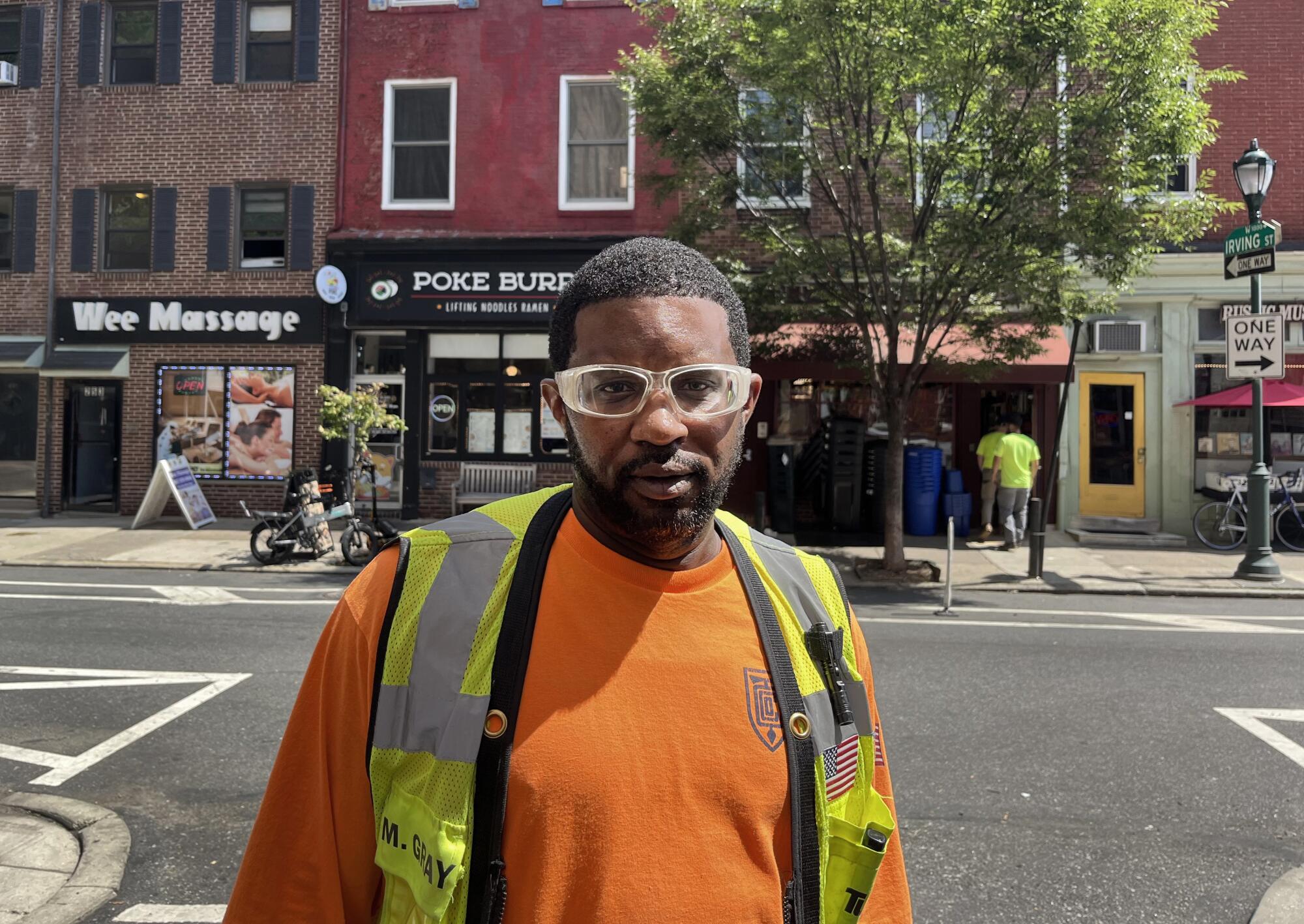
Like most voters, he hears the news in snippets.
For example, he did not know about Biden and Harris’ failed efforts to cap childcare expenses at 7% of income as part of their signature 2021 spending bill. Harris is trying to get the word out, pledging in a rare interview with the National Assn. of Black Journalists in Philadelphia last week to revive the plan if she is elected.
Nor was Gray excited by the potential history of electing the first Black female president. “Man, we already had one Black president,” he said, referring to Barack Obama. “If we have another one, great.”
Poll averages show Kamala Harris leading Donald Trump in Georgia by less than 1 percentage point, suggesting either could win. Some voters say they’re waiting to hear her views.
More than a fifth of Black Americans, especially younger people, are “rightfully cynical” — detached from politics because their experience makes them feel like government cannot improve their lives — and are the least likely group of Black Americans to vote, according to the 2024 Black Values Survey, which measured views on social trust, perceptions of power and racial solidarity.
“It’s like a big game,” said Brian Clark, a 32-year-old security guard in Philadelphia who said he prefers Trump but will not vote for either candidate.
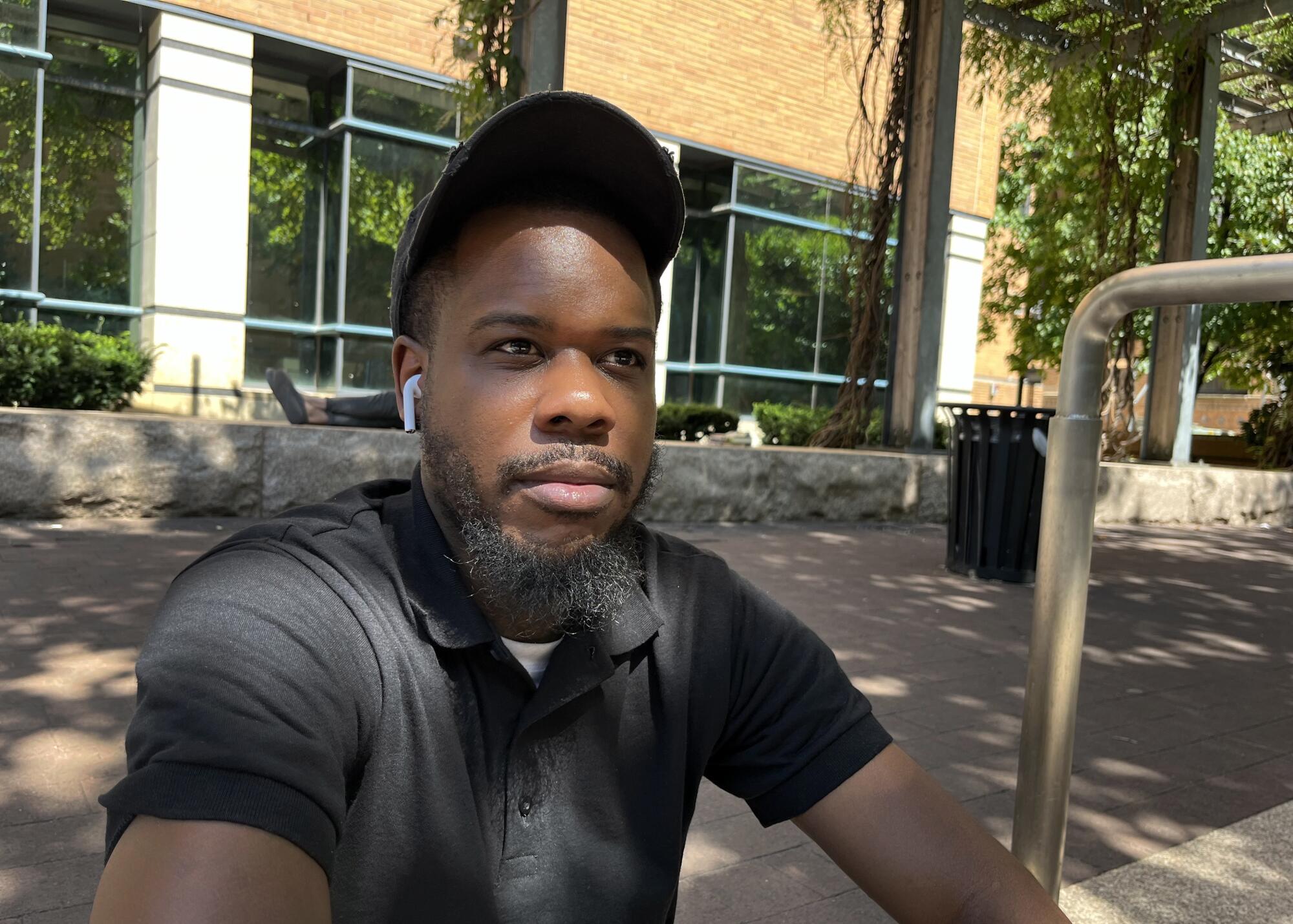
“It’s just about one placebo or the other placebo,” said Cassius Martello, a 23-year-old social media consultant from Gwinnett County, who said he will vote for Harris.
Harris is on firmer footing with older and more educated Black voters, especially those who identify with the legacy of the civil rights era. Many are especially turned off by Trump’s character and rhetoric, and expressed excitement about the prospect of a Black woman leading the nation.
Robert Mitchell, a 65-year-old human resources director in Atlanta, finds it shocking that any Black man would consider Trump, who is running ”to keep himself out of jail,” or that any voter could say they are undecided at this point.
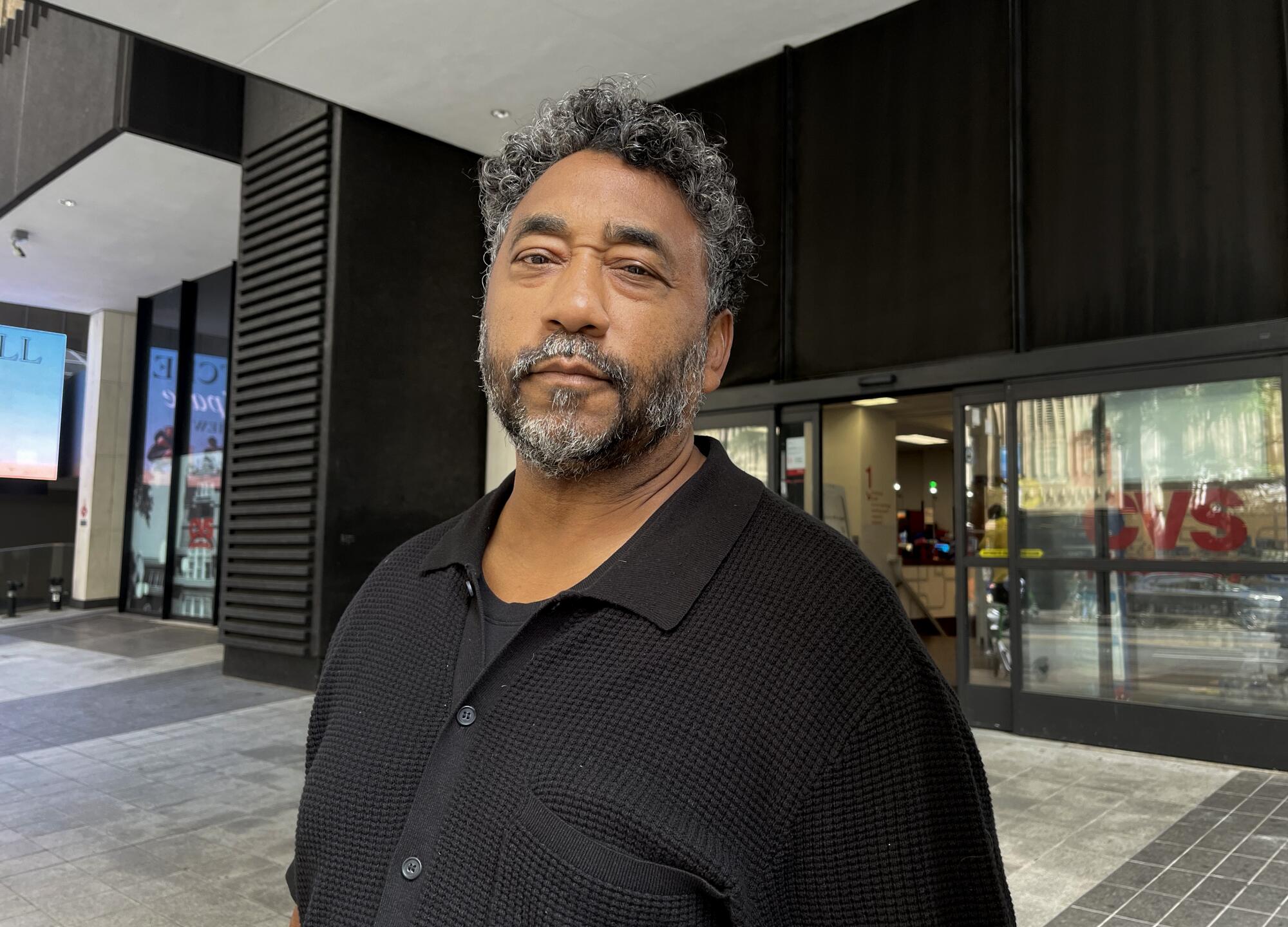
“I don’t know if it’s the thing where — being misogynistic — men just not seeing a woman in charge,” he said. “I do not get it. I’m looking so forward to a woman being president!”
He talked about abortion access for his daughter and granddaughter “if something ever happened to them” and about Trump’s own history of racial incitement, pointing to the full-page ad Trump took out in 1989 demanding the death penalty for five Black and Latino boys who were wrongfully convicted of raping a woman jogging in New York.
Ivan Turnipseed, a 55-year-old hospitality professor in Philadelphia, is less surprised at the resistance to Harris, despite his own enthusiastic support. He sees it in his own family in Mississippi.
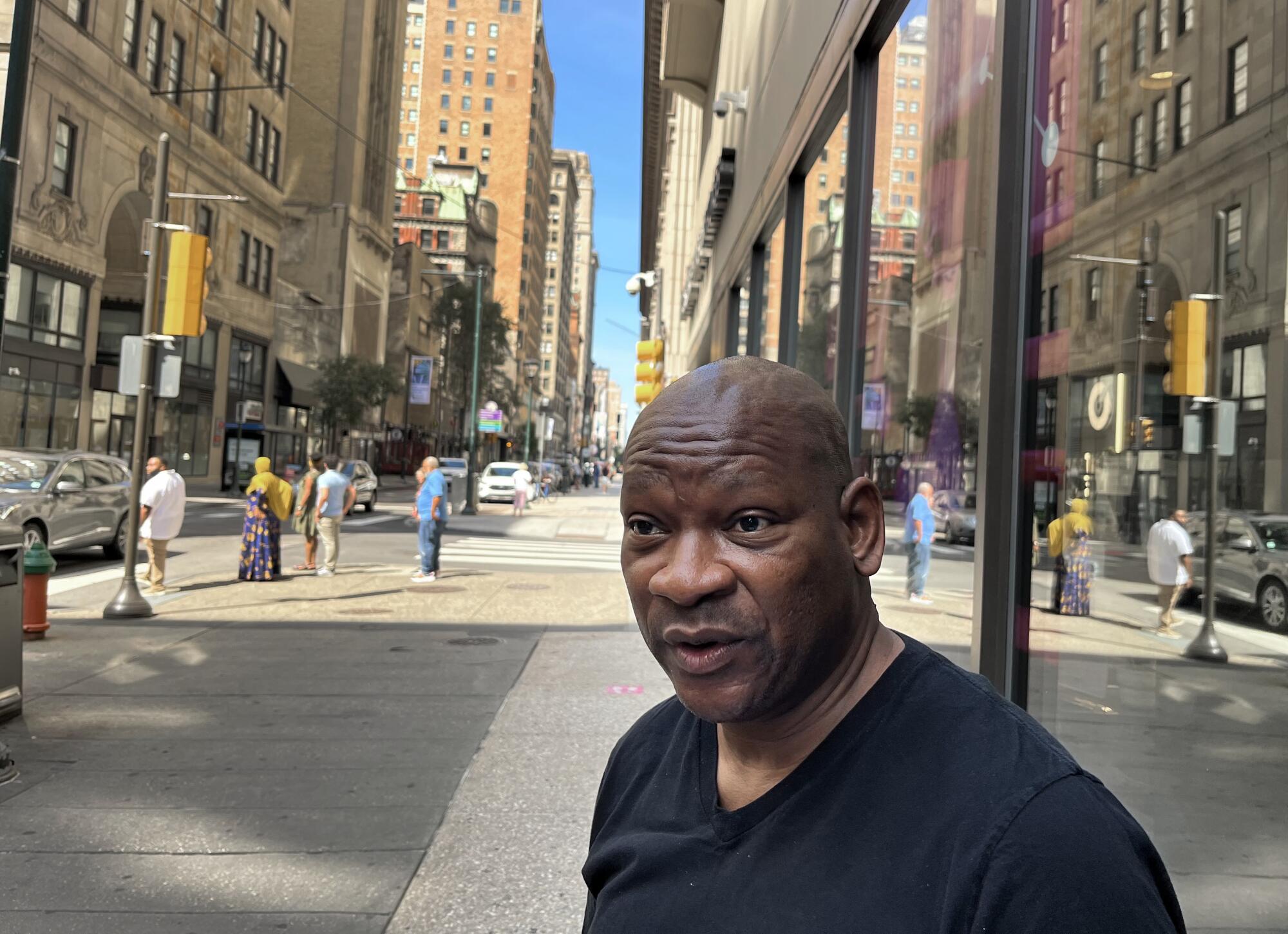
“I don’t know whether it’s just the whole idea of a man being head of the household from a religious perspective, again, from a father, who’s a minister,” who he expects will vote for Trump, he said.
He noted that Black men won the right to vote and served on the Supreme Court before women of either race had the chance.
“This is what we do as a country,” Turnipseed said. “We can get past like, ‘OK, well, maybe, you know, this Black guy will be OK,’ but it’s hard for us. We have whole institutions that don’t allow women to lead.”
Misogyny, however, doesn’t altogether explain Black men’s resistance to voting for Harris. Some Black men who expressed reservations about voting for Harris this year also held back from voting for Biden in 2020.
Former President Trump’s baseless comments about immigrants eating cats and dogs in Springfield, Ohio, have prompted outrage among Florida’s large Haitian population.
Polls show Trump is unlikely to capture a large swath of Black male support where it matters, in key battleground states. His comment questioning Harris’ racial identity appeared more geared toward depressing turnout than winning votes. But even a handful of Democratic defections could matter.
And the reasons Black voters are open to supporting Trump sound almost identical to those of other supporters.
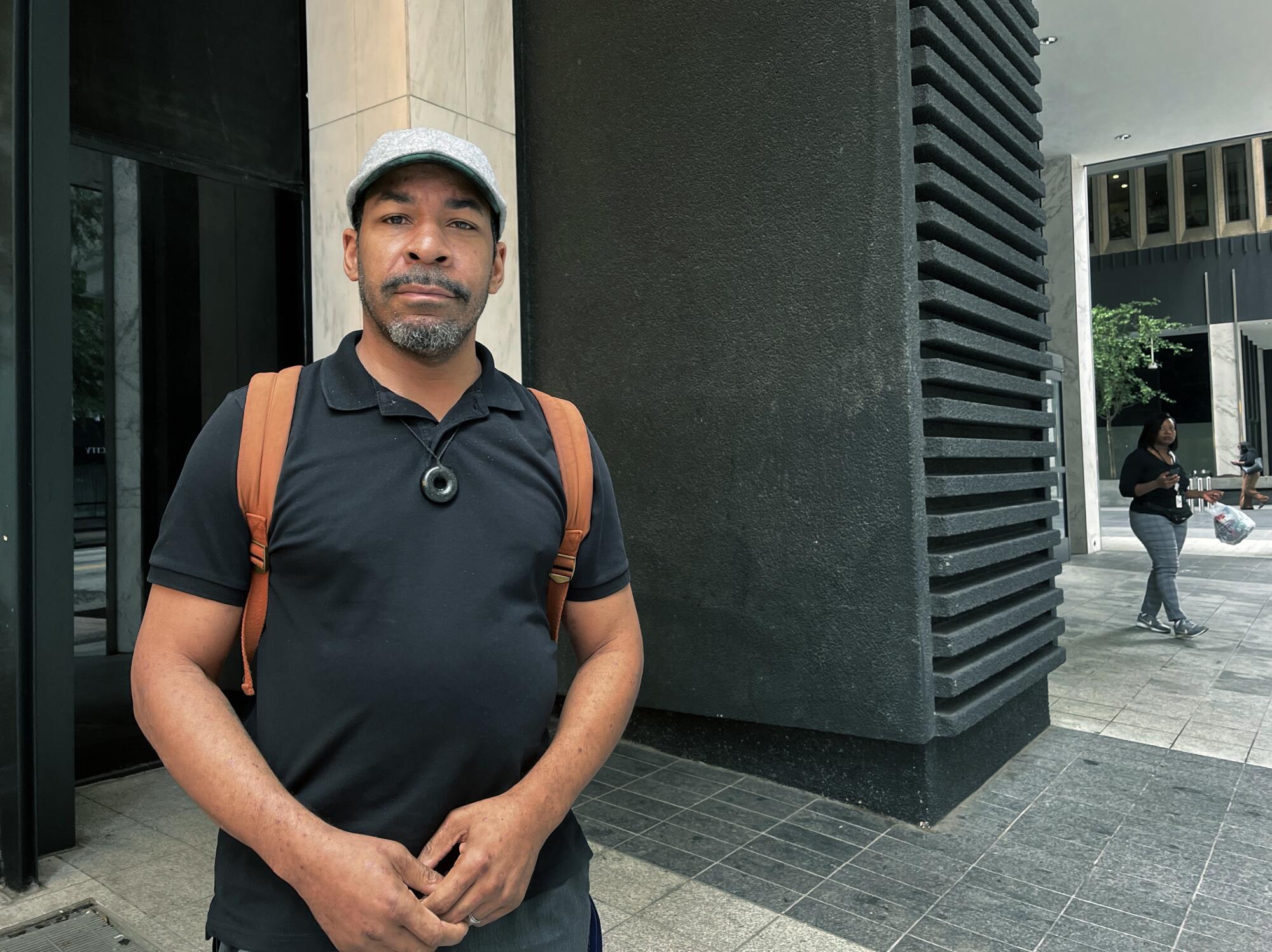
“American citizens, we did very well under the Trump administration,” said Bobby Wilcox, 47, a tax appraisal clerk in Atlanta. “Prices weren’t as high, and people could afford housing. Now people — particularly seniors — are struggling.”
“He’s for the people,” said Sam Williams, 37, a manager at a Chick-fil-A in downtown Atlanta who also works at Jersey Mike’s Subs. He took on a second job in the last year as he struggled to pay his $1,800 monthly rent.
He’s not interested in Harris, he said. “I just don’t feel her vibes.”
Bierman reported from Philadelphia and Jarvie from Atlanta.
More to Read
Get the L.A. Times Politics newsletter
Deeply reported insights into legislation, politics and policy from Sacramento, Washington and beyond. In your inbox three times per week.
You may occasionally receive promotional content from the Los Angeles Times.















